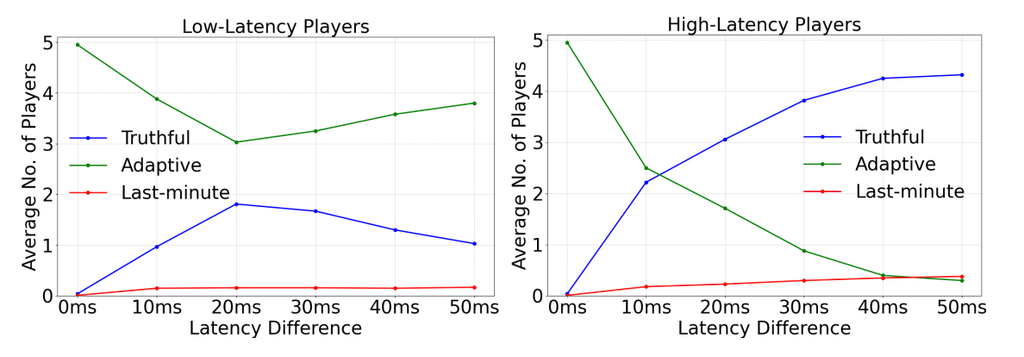Abstract
The block-building process on the Ethereum network has changed significantly with an upgrade of its consensus protocol. Network participants access blocks through block building auctions at a decentralized financial market, termed builder market, where builders vie for the right to build blocks and earn Maximal Extractable Value (MEV) rewards. This paper employs empirical game-theoretic analysis to examine builders’ strategic bidding incentives in the Ethereum block building auctions, termed MEV-Boost auctions. We study various scenarios with different auction game settings and evaluate how critical elements such as network connectivity and access to MEV opportunities impact builders’ strategic bidding incentives. Through our analyses, we highlight the challenge of creating a decentralized yet competitive builder market.
